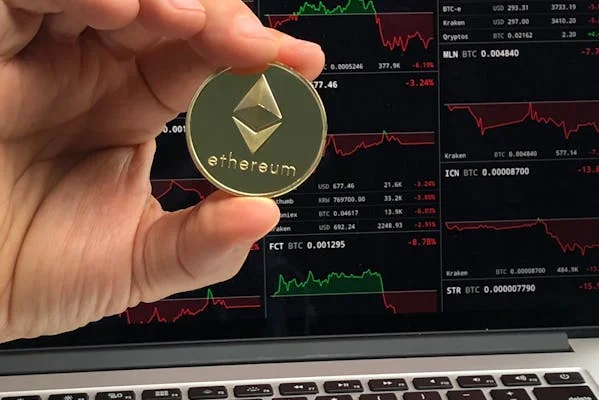The shipping and maritime industry is evolving rapidly, and vessel financing plays a critical role in ensuring long-term sustainable growth. Enter decentralized exchanges (DEX), a groundbreaking innovation within the world of finance enabled by blockchain technology. Vessel finance DEX platforms are now unlocking new opportunities for investors, shipowners, and stakeholders, offering transparency, reduced costs, and faster transactions compared to traditional banking.
But what exactly does vessel financing on decentralized exchanges entail? How does it work? And what benefits can it bring to stakeholders in the maritime industry? This guide will explore the concept of vessel finance, how DEXs are transforming it, and actionable steps for getting started with DEX-based financing solutions.
What is Vessel Finance?
Vessel finance refers to the process of sourcing capital to either purchase new vessels, refinance existing ones, or manage ongoing operational expenses in the shipping industry. Given the capital-intensive nature of the maritime sector, financing is key to ensuring shipping companies can meet demand while maintaining operational efficiency.
Traditional vessel finance often involves banks, investment firms, or leasing institutions, but acquiring funds through these means can be a lengthy and costly process riddled with intermediaries, compliance requirements, and challenges related to market transparency.
The Rise of Decentralized Finance (DeFi) in Vessel Financing
Decentralized finance—or DeFi—eliminates the intermediaries traditionally involved in financial transactions. By leveraging blockchain technology and smart contracts, DeFi solutions allow for peer-to-peer lending, borrowing, and investment—a model perfectly suitable for the modern vessel finance ecosystem.
With the emergence of decentralized exchanges (DEX), maritime industry stakeholders now have access to a faster, more transparent, and cost-efficient method of financing vessels.
The Role of Decentralized Exchanges in Vessel Financing
Decentralized exchanges are platforms built on blockchain networks that enable direct asset trading between parties without intermediaries. These exchanges utilize smart contracts to execute trades and financial deals automatically once predefined conditions are met, eliminating the need for third-party verification.
When applied to vessel financing, DEXs provide shipowners and investors with a streamlined method of transacting without relying on traditional banks or brokers. Here’s how DEX platforms are reshaping vessel finance fundamentally:
1. Tokenization of Ship Assets
DEX platforms enable the tokenization of vessel assets, allowing shipowners to divide the value of a ship into smaller tokens that can be bought and sold by investors. This practice unlocks liquidity and makes it easier for smaller investors to participate in vessel financing projects.
2. Peer-to-Peer Transactions
Through DEXs, shipowners can access funding directly from global investors without needing approval from banking institutions. Blockchain ensures secure and decentralized transactions, making vessel finance faster and more accessible.
3. Smart Contracts
Smart contracts automate many of the manual processes involved in vessel finance, such as loan disbursement and repayment terms. These contracts reduce the risk of human error and ensure that all parties adhere to agreed-upon terms.
4. Accountability and Transparency
The blockchain technology underpinning DEXs offers unparalleled transparency in vessel financing. Every transaction is recorded in an immutable ledger, allowing investors to see exactly how their capital is being used and what returns they can expect.
5. Lower Costs
DEX-based financing significantly reduces costs by eliminating intermediaries such as banks and brokers. This cost-efficiency benefits both shipowners seeking capital and investors looking for a higher ROI.
Benefits of Vessel Financing Through Decentralized Exchanges
The adoption of decentralized exchanges for vessel financing is gaining traction due to a range of compelling benefits, including the following:
Enhanced Accessibility
DEX platforms enable global investors to participate in vessel financing projects from anywhere in the world. By doing away with regional restrictions and traditional banking hurdles, DEXs democratize investment opportunities in the maritime sector.
Improved Liquidity
Tokenizing vessels allows for fractional ownership, making it easier for smaller investors to join the market and for shipowners to receive partial funding whenever needed.
Faster Transactions
Thanks to blockchain-powered smart contracts, transactions on DEX platforms are executed faster compared to traditional financing methods. This is key in an industry where time-sensitive decisions can directly impact profitability.
Risk Mitigation
DEX platforms minimize risks associated with manual processing errors and unclear lending terms. Smart contracts ensure each party adheres to pre-agreed obligations, reducing disputes and defaults.
Cost Savings
Lower fees and the absence of bank commissions create cost-effective solutions for organizations seeking vessel finance.
Step-by-Step Guide to Using DEX for Vessel Financing
Step 1: Understand Blockchain and Tokenization
Before working with a DEX platform for vessel financing, familiarize yourself with blockchain basics and the concept of asset tokenization. Understanding these concepts ensures you can make informed investment and financing decisions.
Step 2: Choose a Reliable DEX Platform
Analyze and select a reputable decentralized exchange offering solutions tailored to the maritime industry. Look for platforms with robust security, user-friendly interfaces, and an active community.
Step 3: Tokenize the Vessel Asset
Work with DEX platform experts to tokenize your vessels into digital tokens that reflect their value. This step makes fractional ownership possible and enhances the asset’s tradability.
Step 4: Create Smart Contracts
Develop smart contracts outlining the financing agreement’s terms and conditions. Include specifics such as repayment schedules and interest rates to ensure clarity.
Step 5: Connect with Investors
Once your tokenized ship assets are listed on the DEX platform, promote your offering to potential investors. Leverage global networks, online forums, and mariner-focused communities to attract interest.
Step 6: Manage and Monitor Transactions
Use blockchain tools to monitor all transactions conducted through the DEX. Maintaining transparency and accountability will build trust with your investors and increase the likelihood of successful financing.
Real-World Success Stories
The maritime industry is starting to see practical applications of vessel finance via DEX platforms. Shipowners have successfully launched asset-backed tokens, and investors have already reported returns on these innovative models. Key examples include projects utilizing Ethereum-based DeFi protocols to finance modernized fleets and support environmentally sustainable ships.
How to Get Started with Vessel Finance on DEX
Whether you’re a shipowner needing capital or an investor seeking new opportunities, vessel financing through DEX platforms offers an exciting avenue for growth and innovation. Begin by researching platforms that specialize in DeFi and tokenized assets, and don’t hesitate to consult blockchain experts for guidance.





